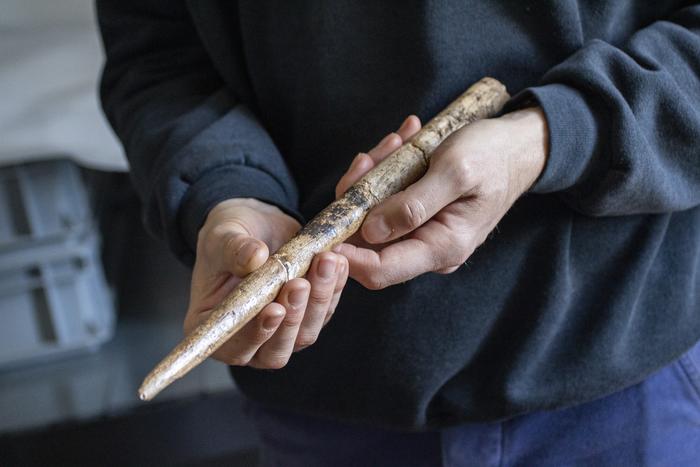Now Reading: World’s Oldest Whale Bone Tools Unearthed in Europe, Dating Back 20,000 Years
-
01
World’s Oldest Whale Bone Tools Unearthed in Europe, Dating Back 20,000 Years
World’s Oldest Whale Bone Tools Unearthed in Europe, Dating Back 20,000 Years

Speedy Summary
- Whale bone tools dating back 19,000-20,000 years have been discovered in Europe by scientists.
- The study,published in Nature Communications,provides the earliest evidence of humans using whale remains as tools.
- Bones from at least five species of large whales were identified,including sperm whales and fin whales. Some species like gray whales are now mostly confined to different oceans.
- Over 150 whale bone tools and fragments were found at coastal and inland sites around the Bay of Biscay (Spain). Inland sites included unworked bone fragments possibly used for oil extraction or as fuel for hearths.
- Ancient humans collected whale bones from carcasses-sometimes decades old-and transported them across challenging terrains (e.g., a steep cliff approximately 230 feet high).
- Chemical analysis revealed differences between feeding habits of ancient and modern whales, offering insights into prehistoric marine ecology.
Indian Opinion Analysis
The study sheds light on a captivating intersection between human history, ecology, and marine biology. By uncovering early human use of whale bones as practical tools-possibly weapons-it expands our understanding of hunter-gatherer ingenuity and their adaptation to coastal environments thousands of years ago.Evidence that these ancient tools required important effort to collect suggests organized social structures facilitating such activities.
For India-a country with extensive coastlines-the findings highlight broader themes regarding the dependence on marine ecosystems by ancient civilizations globally. Indian communities have long demonstrated resourcefulness in utilizing coastal environments historically; parallels may exist that merit further exploration into their own ancestral relationships with marine life.
Additionally, the research raises awareness about the ecological shifts caused by human activity over millennia-a relevant issue for contemporary India grappling with biodiversity conservation along it’s coasts today.
read More: Discover Magazine



























